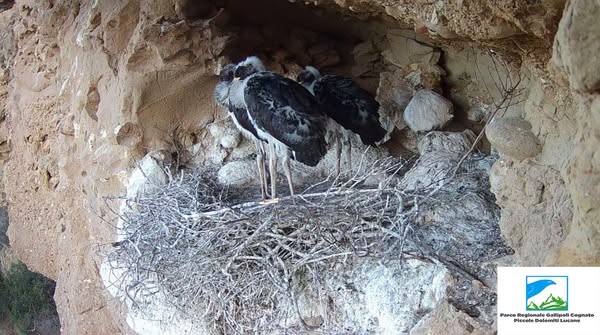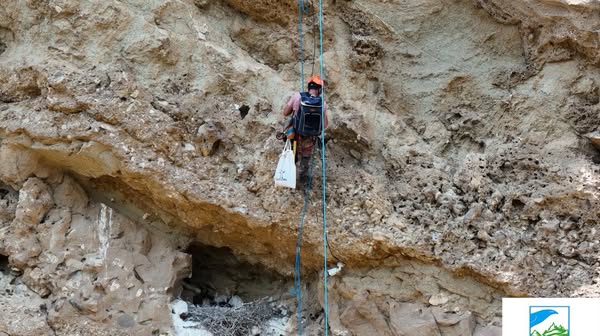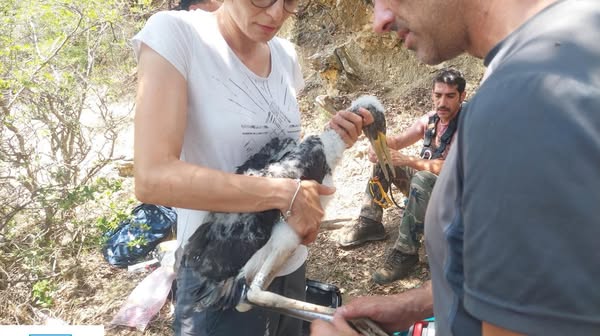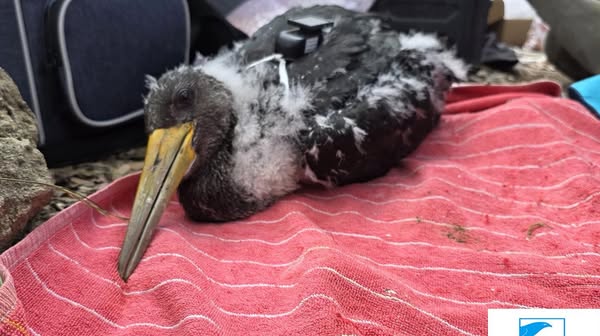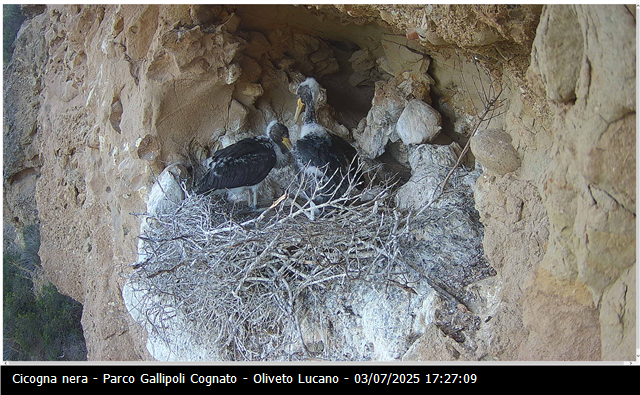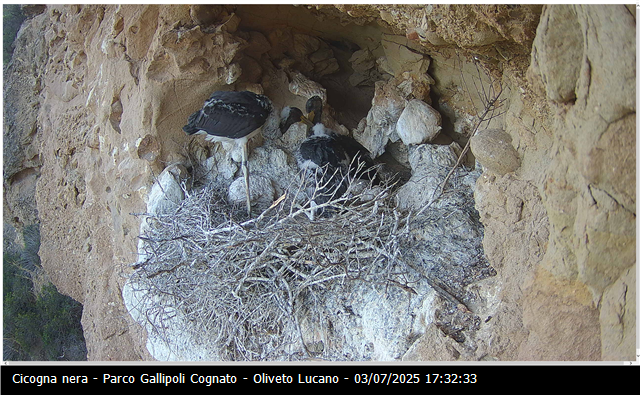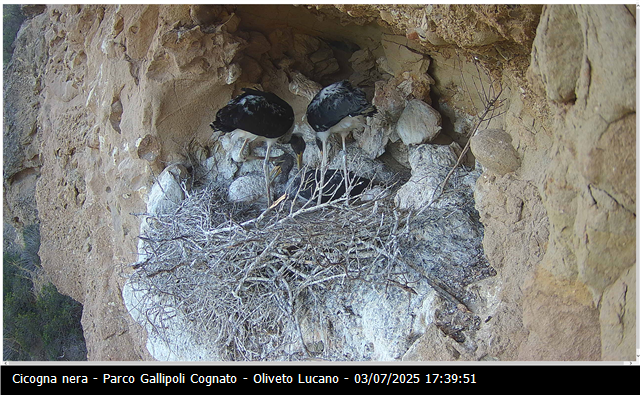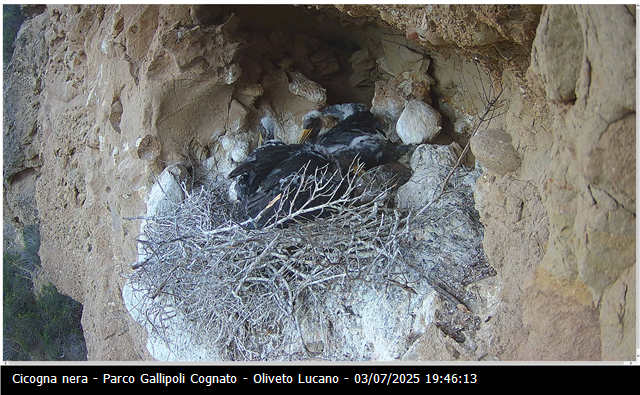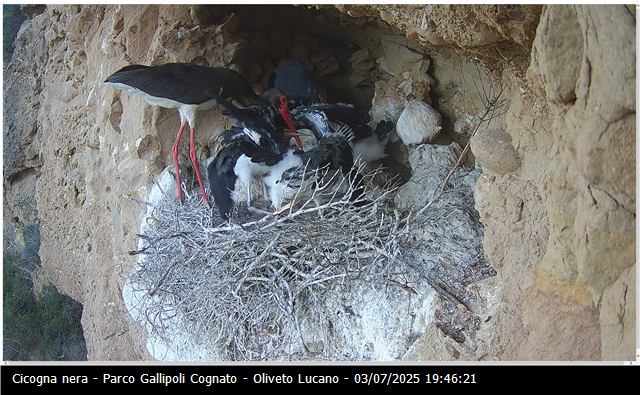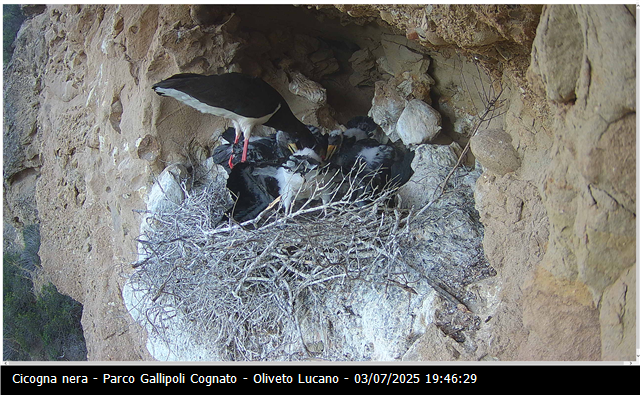FB news - Parco Regionale Gallipoli Cognato Piccole Dolomiti Lucane
https://www.facebook.com/gallipolicogna ... DUUA69we9l
GPS TRANSMITTERS APPLIED TO YOUNG BLACK STORKS IN THE GALLIPOLI COGNATO PICCOLE DOLOMITI LUCANE PARK: THE FIRST STUDY IN ITALY BEGINS IN BASILICATA
Since 2000, the Black Stork, a rare and threatened species, has chosen the territory of the Gallipoli Cognato Piccole Dolomiti Lucane Regional Park as a breeding site.
In 2012, the Park launched a project for the monitoring and protection of the Black Stork, which included the use of cameras to observe reproduction, track the growth and fledging of the young, and capture extraordinary images of the storks' lives and the delicate phases of nesting.
Thanks to the data collected over more than a decade, the project has been expanded to include the use of satellite telemetry, which will allow real-time tracking of Black Storks' movements.
The project to equip young individuals born in the Park’s territory with satellite transmitters is the very first study conducted in Italy on the species Ciconia nigra.
This ambitious project will allow researchers to gain insights into the migratory strategies adopted by the species and the areas selected for wintering, which can be thousands of kilometers from their birthplace. It will also help identify the factors influencing the species’ population dynamics, thereby contributing concretely to its conservation.
A webcam placed at one of the nests in the Park, located in the municipality of Oliveto Lucano (province of Matera), has made it possible to gather valuable information about the reproductive biology of the pair and to share it with enthusiasts by allowing them to follow the nesting live on the website:
https://cicognaparcogallipoli.it.
This year, the pair arrived at the end of February and, after a long period of nest building and defending it from other storks, laid and incubated three eggs. In May, three beautiful chicks hatched.
On July 1st, the most important phase of the project was carried out: the application of transmitters to the young storks. This was done by a team of experts and technicians from the Gallipoli Cognato Park, supported by the Nature Protection Office of the Environment Department of the Basilicata Region, in collaboration with and under the supervision of personnel from ISPRA (Italian Institute for Environmental Protection and Research).
The delicate operations were carried out using techniques and systems designed to ensure the complete safety of the birds and to minimize disturbance, limited only to the time strictly necessary for attaching the transmitters, banding the birds, and collecting biometric measurements.
Over the years, the Park Authority has invested considerable effort into studying this species, contributing at the national level to its conservation and knowledge through the publication of the document “Status of the Black Stork (Ciconia nigra) and Guidelines for the Conservation of the Species in Italy”, which included contributions from numerous authors across the country involved in studying the species.
Field research data suggest that Basilicata may be the stronghold of the species and that the Lucanian territory plays a key role in its conservation and population growth.
Data from last year also confirmed the importance of Basilicata for Black Stork reproduction. In 2024, 43 territorial pairs were recorded in Italy, 13 of which were in Basilicata, confirming it as the region with the highest number.
